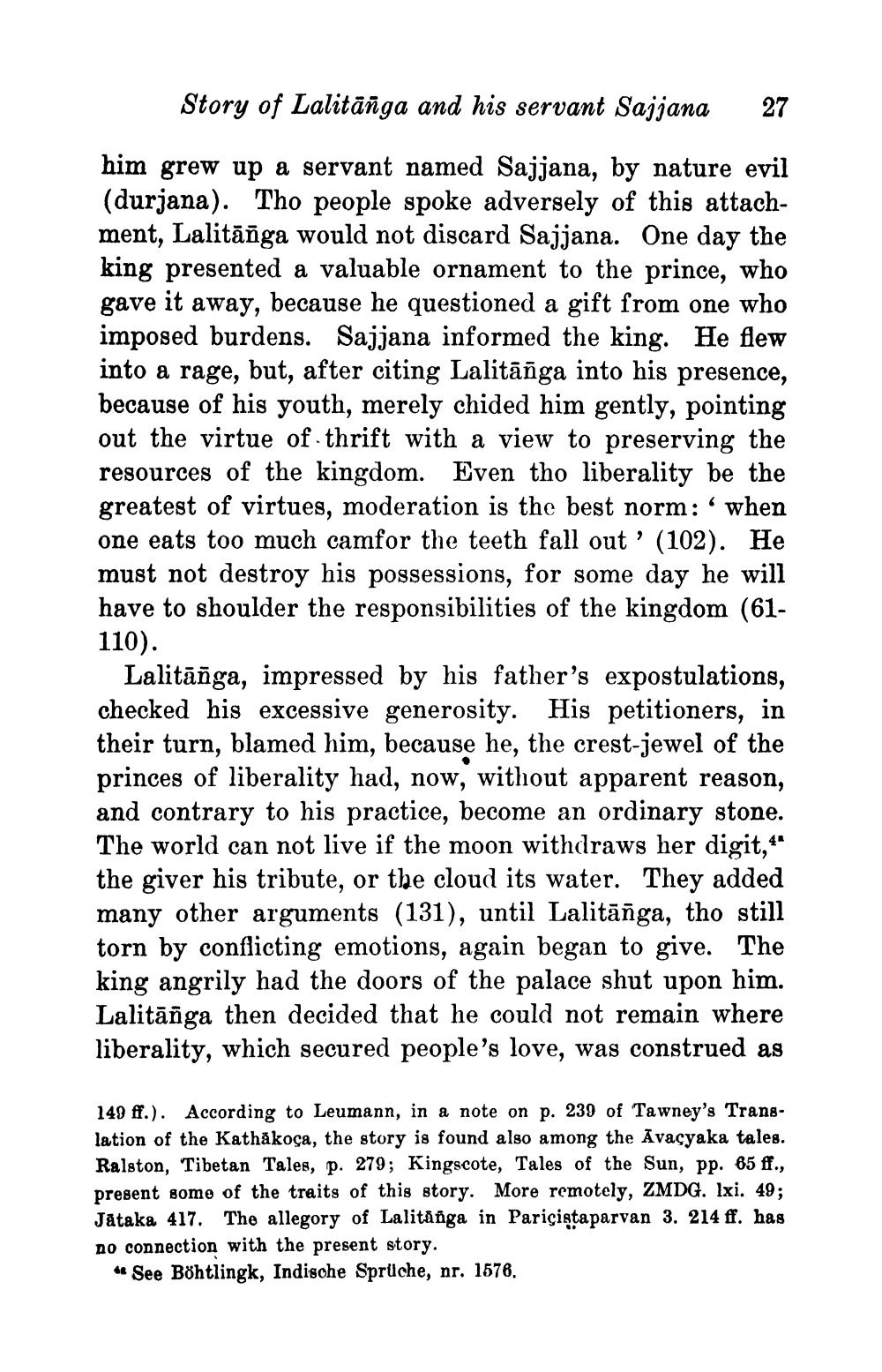________________
Story of Lalitāñga and his servant Sajjana
27
him grew up a servant named Sajjana, by nature evil (durjana). Tho people spoke adversely of this attachment, Lalitāmga would not discard Sajjana. One day the king presented a valuable ornament to the prince, who gave it away, because he questioned a gift from one who imposed burdens. Sajjana informed the king. He flew into a rage, but, after citing Lalitānga into his presence, because of his youth, merely chided him gently, pointing out the virtue of thrift with a view to preserving the resources of the kingdom. Even tho liberality be the greatest of virtues, moderation is the best norm: 'when one eats too much camfor the teeth fall out' (102). He must not destroy his possessions, for some day he will have to shoulder the responsibilities of the kingdom (61110).
Lalitānga, impressed by his father's expostulations, checked his excessive generosity. His petitioners, in their turn, blamed him, because he, the crest-jewel of the princes of liberality had, now, without apparent reason, and contrary to his practice, become an ordinary stone. The world can not live if the moon withdraws her digit,4" the giver his tribute, or the cloud its water. They added many other arguments (131), until Lalitāñga, tho still torn by conflicting emotions, again began to give. The king angrily had the doors of the palace shut upon him. Lalitāñga then decided that he could not remain where liberality, which secured people's love, was construed as
149 ff.). According to Leumann, in a note on p. 239 of Tawney's Translation of the Kathakoça, the story is found also among the Avaçyaka tales. Ralston, Tibetan Tales, p. 279; Kingscote, Tales of the Sun, pp. 65 present some of the traits of this story. More remotely, ZMDG. lxi. 49; Jataka 417. The allegory of Lalitänga in Paricistaparvan 3. 214 ff. has no connection with the present story.
" See Böhtlingk, Indische Sprüche, nr. 1676.




